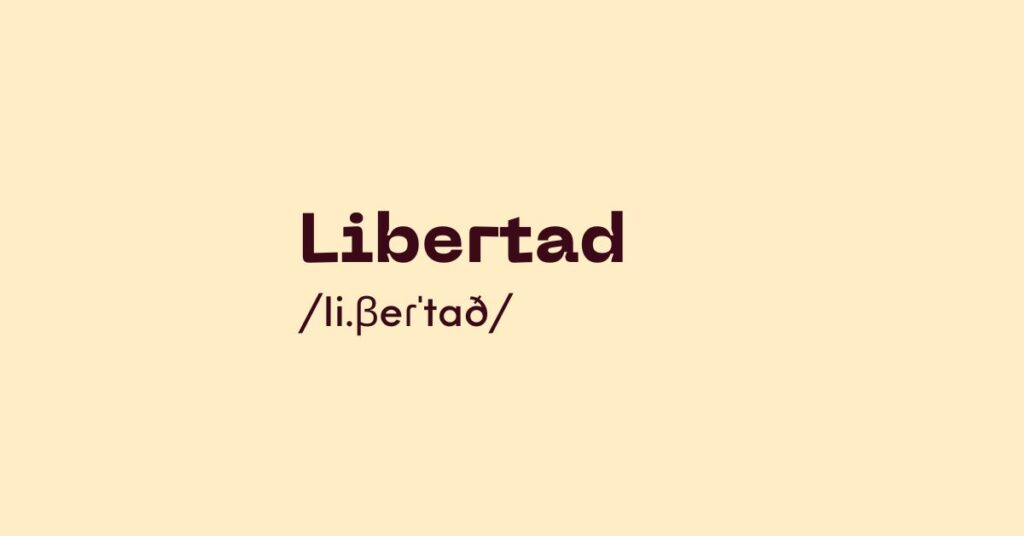Today’s Spanish word of the day is “libertad”. It’s a feminine noun meaning “freedom” or “liberty”.
It comes from the Latin word libertas, which is also the root of the English word “liberty”.
A few related words in Spanish include “libre” (“free”, as in without restrictions), “liberar” (“to free”) and “liberación” (“liberation”).
Example sentences
Lucharon por su libertad.
They fought for their freedom.
Los pájaros simbolizan la libertad.
Birds symbolize freedom.
Valoro mucho mi libertad personal.
I value my personal freedom greatly.
El Cerrito de la Libertad en Huancayo, Perú, tiene una capilla bonita.
Liberty Hill in Huancayo, Peru, has a beautiful chapel.
Simón Bolívar es conocido como el Libertador por su lucha por la libertad en América Latina.
Simón Bolívar is known as the Liberator for his fight for freedom in Latin America.
A couple of tricks for Spanish nouns ending in -tad and -dad
You might have noticed that a lot of Spanish nouns end in -tad or -dad, for example:
- Libertad – Liberty
- Universidad – University
- Facultad – Faculty
- Igualdad – Equality
- Ciudad – City
Here are a couple of tricks for these nouns.
1. All Spanish nouns ending in -tad or -dad are feminine
This means you don’t need to consult the dictionary or try to memorize the gender of all these nouns. Simply remember that nouns ending in -tad or -dad are feminine, so it’s la universidad, la ciudad, etc.
2. Replace the -tad or -dad with -ty, and you’ll often get the English equivalent
Both Spanish and English get a lot of their vocabulary from Latin, but over the centuries the exact form of these words has changed. However, there are patterns that often let you guess what the Spanish word will be given an English word, and vice versa.
One such pattern is that you can often swap the -tad or -dad ending in Spanish and get the equivalent English word. Here are some examples:
- Universi-dad – Universi-ty
- Materni-dad – Materni-ty
- Liber-tad – Liber-ty
- Activi-dad – Activi-ty
However, it’s not always so simple:
- Cali-dad – The English isn’t “cality”, but rather “quality”
- Leal-tad – The English isn’t “leal-ty”, but rather “loyalty”
Words like these have undergone more changes on their journeys from Latin to Spanish and English. However, you can still often guess what the English word is, even if replacing -tad/-dad with -ty doesn’t work perfectly.

